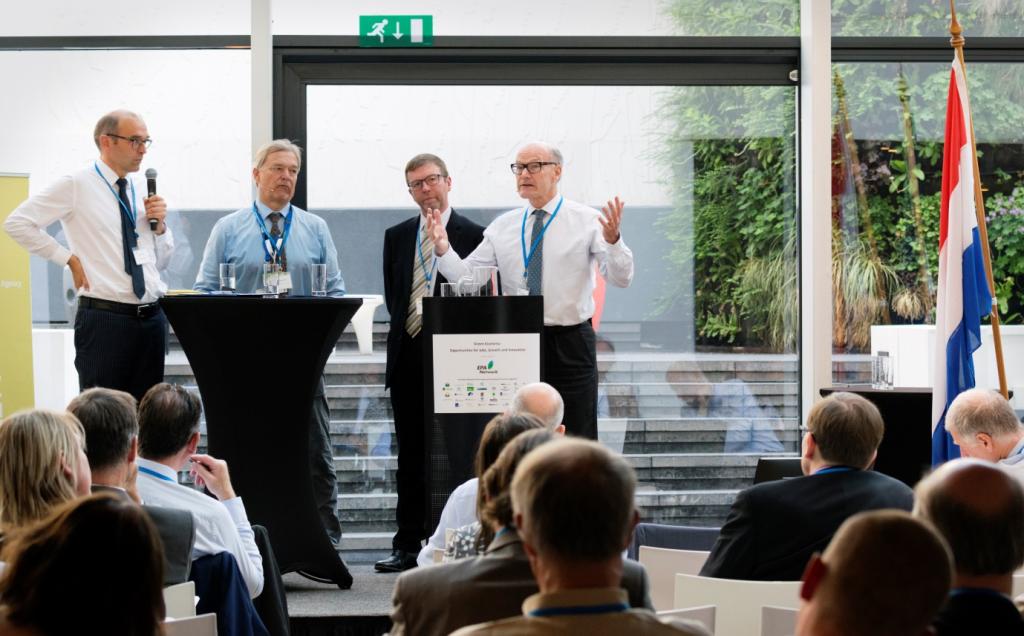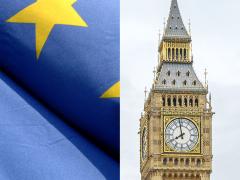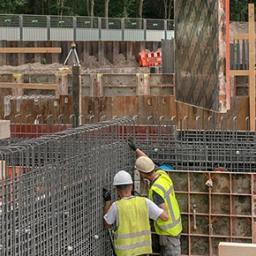Green economy is vital for EU’s global competitiveness
The European Union risks falling behind other world economies unless it takes advantage of the move to a green economy. This was one of the conclusions at the conference 'Green Economy: Opportunities for Growth, Jobs and Innovation in Europe', organised by the European Network of the Heads of Environment Protection Agencies (EPA network) on 5 June in Brussels. PBL Netherlands Environmental Assessment Agency actively participates in this network and organised the conference together with some other EPAs. PBL director Maarten Hajer facilitated the discussion between the keynote speakers.

Climate change, a finite planet and a booming global population has forced policymakers to examine how best to become a low-carbon, sustainable society. They recognise innovation as a growth driver. The transition will create jobs, growth, and health benefits over the long term, Professor Paul Ekins, Director of University College London Institute for Sustainable Resources, told the European Network of the Heads of Environment Protection Agencies.
Create the conditions for eco-innovation
But Karl Falkenberg, Director-General of the European Commission’s DG Environment, admitted that the EU could miss out if it failed to create the right conditions for eco-innovation.
'I really see a possibility of repeating the story of solar panels', Falkenberg said at the conference of European environment agency bosses. Europe was the global leader in solar panel technology but was overtaken by China, which now dominates the market, he said. 'We didn't decide sufficiently decisively and timely enough to really drive this market', said Falkenberg, who said the Chinese were investing in the innovative high-end of the sector.
The EU is still a world leader in recycling tech but, without ambitious short term targets, the technology would be developed elsewhere, he warned.
Bringing together economy and environment
It's not too late for Europe to harness its strengths to boost its global competitiveness in a low-carbon future, said Gwenole Cozigou, from the Commission’s department for growth and industry. The Director for Industrial Transformation and Advanced Value Chains said the new Circular Economy package of EU waste and recycling laws would bring together the economy and the environment. The creation of systemic eco-innovation is a goal of the EU’s Horizon 2020 research programme. The Energy Union strategy calls for the EU to become the world number one in renewables through innovation.
Green economy is a political challenge
The European Commission could provide a framework, said Cozigou, but it is up to other market actors such as business and civil society to drive the transformation. 'The challenge of the transition to the green economy is not a financial or a technical challenge', said Marianne Fay, Chief Economist at the World Bank. 'It’s a political one.'
With research and innovation there is 'no doubt jobs would be created. She asked, 'Why would a green economy be less job-intensive or deliver less growth than a dirty economy?' But there is no guarantee that jobs would be created during the shift at the same time they were lost, said Fay, which is why social safety nets and retraining are so critical. Governments play a crucial role.
Long-term economic rewards
Pressures like climate change mean 'brown' investments are not sustainable, said Professor Ekins, while long term green investments bring longer lasting, yet less immediate, macro-economic rewards. But short term results on jobs and growth arte exactly what EU national leaders are under political pressure to deliver, said Karl Falkenberg.




